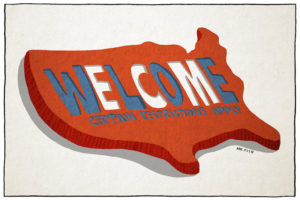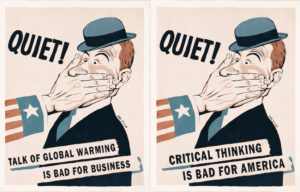Immigrants Don’t Hurt U.S. Jobs, Says Study
In what could be tantamount to dropping a neutron bomb on xenophobes like Lou Dobbs, a study by the Pew Hispanic Center found that high levels of immigration in the past 15 years do not appear to have hurt employment opportunities for American workers. But some economists question the study's technique. Check out Truthdig's Marc Cooper on the myths of America's immigration debate.In what could be tantamount to dropping a neutron bomb on xenophobes like Lou Dobbs, a study by the Pew Hispanic Center found that high levels of immigration in the past 15 years do not appear to have hurt employment opportunities for American workers. But some economists question the study’s technique.
Your support matters…Washington Post:
High levels of immigration in the past 15 years do not appear to have hurt employment opportunities for American workers, according to a new report.
The Pew Hispanic Center analyzed immigration state by state using U.S. Census data, evaluating it against unemployment levels. No clear correlation between the two could be found.
Other factors, such as economic growth, have likely played a larger role in influencing the American job market, said Rakesh Kochhar, principal author of the report and an economist at the Pew Hispanic Center in the District.
“We are simply looking for a pattern across 50 states, and we did not find one,” Kochhar said. “We cannot say with certainty that growth in the foreign population has hurt or helped American jobs.”
Independent journalism is under threat and overshadowed by heavily funded mainstream media.
You can help level the playing field. Become a member.
Your tax-deductible contribution keeps us digging beneath the headlines to give you thought-provoking, investigative reporting and analysis that unearths what's really happening- without compromise.
Give today to support our courageous, independent journalists.





You need to be a supporter to comment.
There are currently no responses to this article.
Be the first to respond.